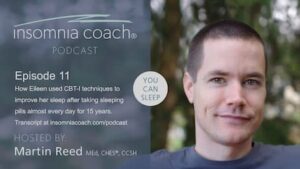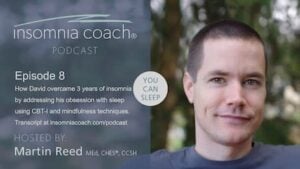How Anna went from not feeling sleepy at night and thinking her sleep system was broken to sleeping well and with confidence (#17)
Anna had been experiencing short episodes of insomnia for five years, but when her mother fell ill and required surgery, Anna’s sleep problems worsened. She found it difficult to fall asleep and even after her mother recovered, Anna’s sleep issues persisted. Over the next two years, Anna tried various methods to improve her sleep, such as sleeping pills, supplements, relaxation techniques, light-blocking glasses, sound machines, and weighted blankets, but nothing seemed to work. Her ongoing worry and research about sleep only added to her stress.
In this episode, Anna shares her journey towards improving her sleep and provides insight into how she coped with setbacks along the way. Her experience shows that there is hope for those who struggle with insomnia, and that evidence-based techniques can be an effective way to improve sleep.










